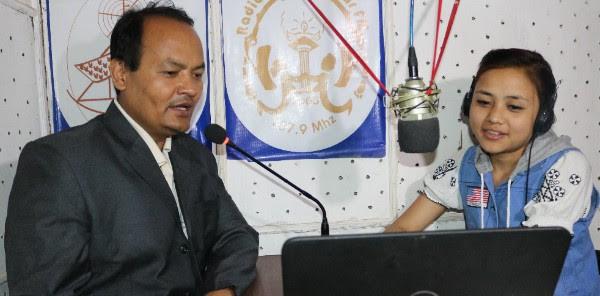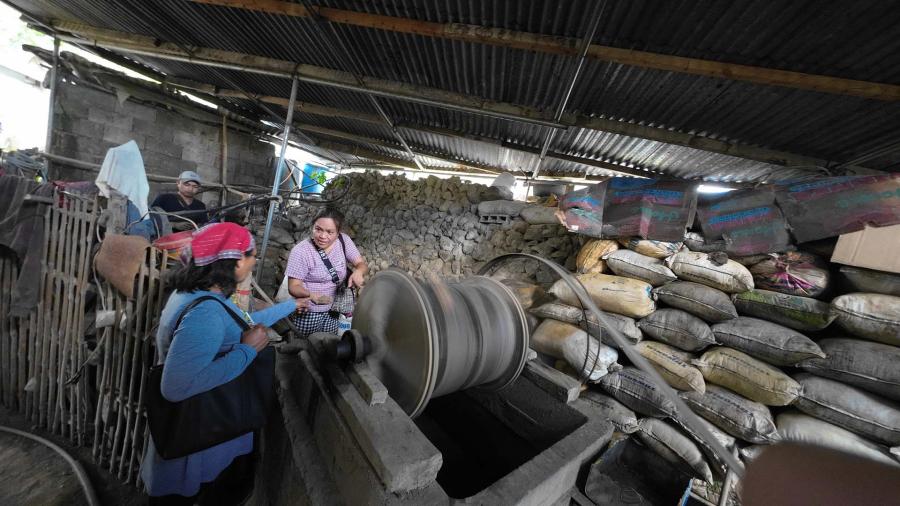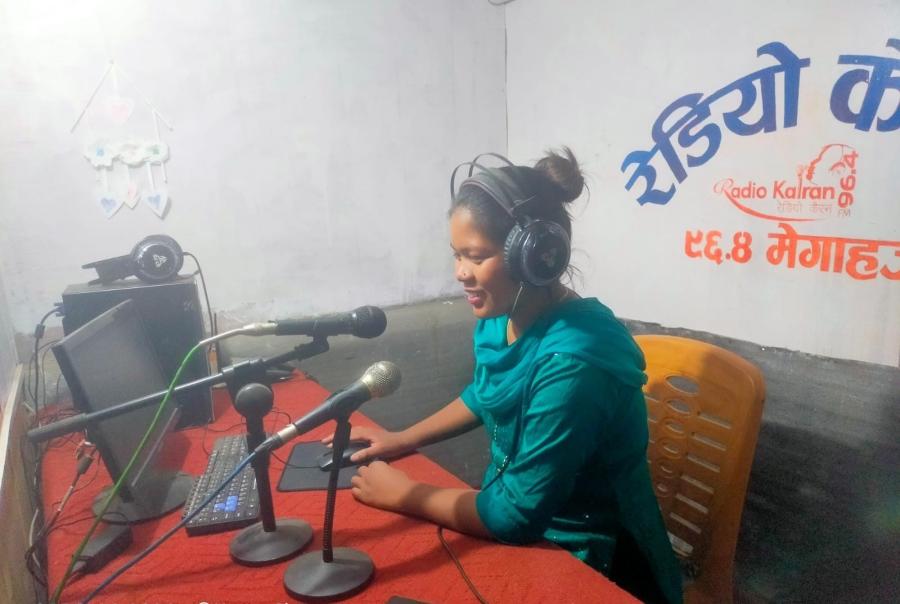
In May 2018, at the the 95th Session of the UN Committee on the Elimination of Racial Discrimination (CERD), Nepal’s human rights record was reviewed under the Convention on the Elimination of Racial Discrimination. The Committee stated several concerns regarding Indigenous Peoples, also known as Adivasi or Janajati in Nepal. In April, Cultural Survival submitted and alternative report on the violations of Indigenous Peoples’ rights in the country and provided recommendations for the Nepalese government.
The CERD Committee incorporated some of Cultural Survival’s recommendations related to Indigenous Peoples rights in their concluding observations, which include:
- ensuring the recognition of all Indigenous Peoples in Nepal,
- respecting Indigenous political participation and ensuring their representatives are freely chosen,
- revising legislation to resolve disputes concerning Indigenous rights to traditional land and natural resources,
- upholding the right to Free, Prior and Informed Consent,
- ensuring evictions are carried out according to international standards and provide remedy and housing for those who are evicted, and
- protecting Indigenous Peoples from acts or threats of violence, including those carried out by the state, and taking measures to investigate and prosecute these crimes.
Specifically, the CERD Committee was concerned about Indigenous Peoples lacking adequate and and meaningful participating in the drafting of the 2015 Constitution, because their representatives were not freely chosen but were instead selected via political parties. The Committee also voiced concern that domestic legislation only recognises 59 out of the 81 Indigenous Peoples in Nepal.
The Committee also was concerned by “the absence of laws guaranteeing the rights of Indigenous Peoples to own, use and develop their traditional lands and resources, and by allegations that these rights have been violated in the context of hydropower, road widening and other development activities that are often accompanied by involuntary displacement; by reports of severe harassment of Indigenous leaders, including members of the Tharu people, by State agents; and by the criminalization of cow slaughter, which compromises the rights of indigenous peoples for whom the eating of beef holds cultural significance.”
The Committee has recommended the government of Nepal to:
“(a) Ensure that its domestic legislation formally recognizes all indigenous peoples in Nepal;
(b) Ensure that the right of indigenous peoples to participate in government bodies under article 42 of the Constitution is effectively respected and that indigenous peoples freely choose their representatives;
(c) Find an adequate negotiated solution to resolve the dispute regarding the rights of indigenous peoples over their traditional lands and natural resources, including by revising its legislation on this issue and taking into account ILO Convention No. 169;
(d) Obtain the free, prior and informed consent of indigenous peoples prior to the approval of any project affecting the use and development of their traditional lands and resources;
(e) Take all necessary measures, including legislative measures, to guarantee that evictions are carried out in accordance with international standards, and provide remedies and adequate alternative housing to those affected by eviction;
(f) Ensure the safety of indigenous peoples who have been subjected to threats, harassment, and other arbitrary and violent acts by government agents and/or private individuals; and take measures to prevent and investigate such acts and punish the perpetrators.”
The Committee also invited Nepal to repeal laws that criminalize aspects of Indigenous cultures in order to respect the rights of Indigenous Peoples to freely exercise their cultural and religious rights.
The Committee has further raised concerns about underrepresentation of Indigenous peoples in education and teaching positions, persistence of bonded labour practices, including Kamaiya, reports of Adivasi/Janajati comprising almost half of trafficking victims and landlessness among Adivasi/Janajatis, among others and made recommendations to address such discriminatory situation.
Cultural Survival’s report discusses these issues, along with violations of freedom of speech, preservation of languages, and human trafficking. The report begins by noting controversy surrounding government recognition of Indigenous Peoples, including a contested statistic of Indigenous population, ranging from the census’ figure of 35.81% to Indigenous Peoples’ organizations’ figure of over 50%. The report also mentions government exclusion and restriction of Indigenous participation and representation in political processes despite recommendations from a CERD Committee and the Special Rapporteur on the Rights of Indigenous Peoples to address these violations of internationally recognized rights.
The report describes excessive, military force used by the government to suppress Indigenous people protesting for the inclusion of Indigenous Rights in the constitution and protesting against development projects in their ancestral land. This abuse of Indigenous protestors is noted in many private-sector hydropower projects along with the World Bank-funded Nepal Power Development Project. The prohibition of cow slaughtering has also led to the detention (along with abuse and torture) of many Indigenous people. It is argued in the report to be a violation of the right to religious freedom under Article 1 of the UNDRIP, as many Indigenous communities have traditionally relied on the cow for subsistence or religious practices.
Indigenous Peoples have also been displaced from their land through conservation policies. Approximately 65% of Indigenous Peoples’ lands in Nepal have been occupied by national parks and reserves, forcing many to relocate and disrupting traditional subsistence practices. The establishment of these national parks are often done without the consultation of Indigenous communities, and Indigenous representation in conservation decision-making processes is lacking. This displacement and disruption of traditional subsistence practices has contributed to high levels of hunger and malnutrition in Indigenous communities.
The implementation of a new government policy the “Online Media Operation Directive” gives the government the authority to shut down an online news portal if it is not registered every year, or if it spreads news that is deemed illegal, immoral, or misinformative. Under this policy, Indigenous people have faced censoring as the government has discretion in determining if the information reported is lawful or appropriate.
The report describes the preservation of languages as another key issue facing Indigenous people. Efforts to educate children in their mother tongue through the government’s 2009 Multilingual Education Implementation Guidelines were ineffective due to insufficient government funding. Even this program, however, only included the Nepali language as the primary language of instruction, putting non-Nepali speakers at a disadvantage. High rates of illiteracy exist in some Indigenous communities, especially among women.
Indigenous women in particular face high rates of poverty and violence. The report cites the figure that 7 out of 10 girls who are trafficked are from Indigenous communities. While the Committee on the Elimination of Discrimination Against Women has recommended that Nepal works to address the trafficking of women and girls, it does not mention ethnicity as a factor to be specifically addressed in this initiative, leaving the particular needs and concerns of the most affected population, Indigenous women and girls, unacknowledged ad unaddressed.
The report also highlights institutionalized discrimination, with the protection of ‘secularity’ in Article 4 (I) of the Constitution of Nepal being interpreted as the protection of Hindu religion and culture. Along with this, certain ethnic groups were given special recognition in the constitution. When the European Union Election Observation Mission recommended that the government of Nepal remove this special inclusion of particular ethnic groups, the government and major political parties rejected the recommendation and requested that the Mission revise the report.
Cultural Survival’s recommendations for the government of Nepal included supporting Indigenous media, amending the National Parks and Wildlife Conservation Act to ensure the access of natural resources to Indigenous communities that have relied on them, ensuring education for children in their mother tongues, and urgently promoting the rights of Indigenous women by addressing the root causes of poverty, marginalization, land loss, and economic migration.
Read Cultural Survival’s report here.
Read the full report of the CERD review at https://bit.ly/2ys3NAM
More info on the review at https://bit.ly/2Hh6c1e
Photo: Radio Janasanchar in Karyabinayak, Bhaktapur, Nepal



